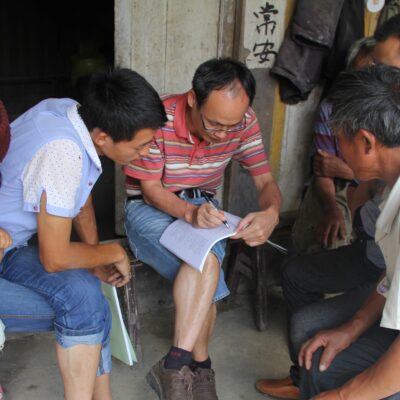The SARS-CoV-2 (COVID-19) pandemic has posed unprecedented global challenges to economic, social and health sectors since January 2020. The global figures, according to the World Health Organisation, are 572.2 million cases with 6.39 million deaths, and Hong Kong has had approximately 1.35 million cases with more than 9,600 deaths at the time of publication.
Crucial mental health concerns have largely been overlooked by the Hong Kong Administration, (and in many other parts of the world). Emotional disconnection caused by public health measures such as mandated quarantine and isolation have produced stress and anxiety levels that are running at all-time highs. This article outlines ongoing challenges to pandemic-related mental health in Hong Kong and highlights how we can be better prepared for the next pandemic. It also presents a novel intervention aimed at supporting isolated people through quarantine.
From the start of the pandemic, there were concerns that suicides would increase due to an unprecedented accumulation of risk factors, such as the stress of potentially becoming infected with the virus, the social isolation required to reduce its spread, economic stresses such as job losses, as well as decreased access to medical, social and mental health care due to the prioritisation of care for COVID-19 patients and staff shortages due to deployment and illness. Overall, these concerns appear not to have been realised, firstly in an analysis of suicide rates in 21 high-middle income countries six months after the pandemic commenced, and secondly in a recent follow up study of 33 countries 9-15 months after pandemic began. However, age-specific analyses of these findings are inconsistent across countries, and age group differences require careful consideration.
Our long-term research area has been suicide in Asian countries, particularly focusing on suicide in different age groups. For instance, overall suicide rates in Taiwan in 2020 (the first year of the pandemic) slightly decreased. This was mainly driven by lower suicide rates in people aged between 25 and 64 years, despite higher suicide rates in younger (<25 years) and older people (65+ years). In Hong Kong, we found a similar age-related pattern in suicides. For older adults, higher suicide rates were especially noticeable during the fifth COVID-19 wave from January 2022, and for younger people, the increase appears to have coincided with reopening of schools after school closure dues to COVID-19. These findings are different to those in many Western countries, where older adults, compared to their younger counterparts, have shown better mental health resilience and less mental health deterioration during the pandemic compared to any other age group.
Government responses and quarantine measures
The COVID-19 pandemic has triggered an unprecedented level of public policy response around the world, aimed at virus containment including stay at home orders, the suspension of schools, the cancellation of public events, face mask wearing and testing and contact tracing. Economic responses have included income support and debt relief. Higher income countries, compared with lower income countries, have adopted a greater number of fiscal policies and provided more economic stimulus packages. There has been inequality between higher and lower income countries in their response to COVID-19, particularly related to a lack of resources in low-income countries to support policy responses to combat COVID-19.
China has adopted some of the most stringent measures in the world aimed at zero incidence of COVID-19, including the imposition of strict restrictions of movement across whole cities, such as in Wuhan in early 2020, and Shanghai in May 2022. However, concerns have been expressed about the effectiveness of these measures and the negative impact they have had on the economy and people’s mental wellness.
Whilst the Western world is recovering and gradually reopening after more than two and half years of the pandemic, China is still maintaining a strict isolationist policy. For example, the Mainland Chinese Government required Hong Kong residents to undergo seven days of quarantine at government designated facilities, followed by three days home quarantine and to follow instructions on quarantine procedures according to local authorities’ requirements. This has been a huge physical, mental, social and economic challenge, and a disincentive for cross-border travel. Before the pandemic, cross border traffic exceeded 500,000 people daily, but currently this travel has essentially stopped. Many families with some members residing in Mainland China and some in Hong Kong have been largely separated for more than two years. Hong Kong, a special administrative region of China, is also practicing stringent measures for travellers from other parts of the world or local residents returning from overseas. Mandatory hotel quarantine is still required, although it has been progressively reduced from 21 days to 14 days to seven days to three days (at 5th September, 2022). Any period of hotel quarantine is still a major obstacle for any visitor to Hong Kong. This restriction has significantly disrupted the tourist economy and the reputation of Hong Kong as an international city especially since there is no comparable restrictions in other parts of the world.
It is well understood that social distancing measures and restrictions on movement can isolate infected people from others and reduce the spread of the disease. However, the consequences, especially for vulnerable people and the elderly, include loneliness, disconnection from family, friends and usual social activities, and compromised mental health.
These consequences have been overlooked by many Governments, even those who had already had exposure to these consequences in 2003, during the SARS-CoV-1 epidemic. This resulted in the suspension of social and family gatherings, regular health check-ups, food delivery services and activities at aged care centres. Suicides in Hong Kong hit a record high of 18.6 per 100,000, or 1,264 in 2003. This was a 32 percent increase in the number of suicides by older people compared with 2002. Our investigations around this time, based on 2003 files from the Coroners Court, showed how fear of contracting the disease as well as the isolation brought about by quarantine measures disrupted mental wellness, particularly for older people. The resultant loneliness and isolation affected many people’s mental well-being. Poor economic performance and high unemployment rates in Hong Kong which followed SARS-CoV-1 also fueled the fear induced by the epidemic. The suspension of hospital visits may have decreased the fear of patients contracting the virus from visitors, but this, and the suspension of many health support services had severe detrimental impacts by decreasing support networks for patients and increasing medical staff workloads. Social distancing responses to SARS-Cov-2 had similar effects on community mental health and wellbeing, particularly the elderly.
Despite prior experience with SARS-CoV-1, there has been a lack of policy attention to mental health in Hong Kong during the COVID-19 pandemic. Fear of contracting COVID-19 and the disconnection and isolation arising from the quarantine measures have induced loneliness, fear and panic in the community, especially for those vulnerable and older. The suspension of evening dining services in restaurants has driven the closure of many eating outlets and increased the unemployment rate to about 5.4 percent in May 2022. The closure of beaches, sports grounds, gyms and many public outlets has deprived Hong Kong citizens of their usual leisure and exercise opportunities; adversely affecting the mental wellness in the community has been deteriorating to a risky level and the suicide risk especially among older adults and young people is at all-time high.
Staying connected during the disconnection
It is undoubtedly difficult for policymakers to reduce virus spread and mitigate the mental health problems caused by the fear of the virus and the social disconnection caused by public health measures. However, Hong Kong policy makers and the community should be alert to the mental health concerns and be better prepared for the next wave of COVID-19 and/or future emerging diseases.
Governments and communities need to be sensitive to those in quarantine, and provide alternative means to support them, and enable them to connect easily with others by providing internet enabled mobile devices that can access platforms/applications for online communications. Hospitals are high-risk areas for infection, and restrictions on visitors are understandable, however it would benefit patients if they had access to mobile devices to enable them to stay in contact with loved ones, as not all elderly persons process such social media devices due to their financial circumstances. Due to quarantine measures during SARS and COVID-19, many older adults in Hong Kong hospitals have tragically died without the companionship of their loved ones. The grief of their family members has yet to be properly dealt with. Telephone hotlines or telehealth services could provide advice and avoid unnecessary emergency admissions to ease congestion in the hospital system. With many leisure and recreational activities disrupted, TV and radio stations should provide ‘infotainment’ and ‘edutainment’ programs specifically focused for those in quarantine, and the community at large.
There are many community-initiated responses to helping those in quarantine. It is heartening to witness the enthusiastic community-generated responses that provide free and targeted services especially to older adults and other vulnerable people. It is important for the Government to be able to leverage off community resources to enhance the level of support. Government can’t do and should not try to do everything by itself during the pandemic. Extra efforts have been made to reach out to vulnerable people who need help and support without excessively compromising safety standards. Home visitation for older adults who live alone has been arranged by a few NGOs to maintain the connection between vulnerable and the community at large. Governments and charitable organisations (such as the Hong Kong Jockey Club Charities Trust) have been provided alternative services, whether online, via phone or in other modes, such as free mobile devices with pre-paid data plans, to connect those who have been disconnected.
Fear, anxiety and panic in the midst of a pandemic are common, and this needs to be managed better going forward. Correct and timely information is the first step. Transparent and accurate technology-based information-exchange platforms are important. People should be encouraged to be gatekeepers for each other, to assist with the early identification of vulnerability. It is also essential to educate and equip the general public with the skills and knowledge to identify fake or inaccurate news to prevent wide-spread panic. Ways of strategically easing quarantine measures to enhance mental health without disproportionately compromising infection risk should be considered.
The ‘Wellcation’ package
The Hong Kong Jockey Club Centre for Suicide Research and Prevention (CSRP) of Hong Kong University’s (HKU) Faculty of Social Sciences created a quarantine wellness kit in 2021 named ‘Wellcation’ to provide support for those in quarantine.
Together with HKU’s Centre on Behavioural Health and the Centre for Sports and Exercise, CSRP members spent a month developing a digital Quarantine Wellness Kit. Available in 14-day and 21-day versions, ‘Wellcation’ is an evidence-based programme of activities and guidance to help people get through their quarantine period. Wellcation begins with an idea: ‘If you don’t like something, change it. If you can’t change it, change your attitude.’ A key message is that quarantine is not a prison sentence, and that, with the right conditions, it can be an opportunity for people to reset, recalibrate and reinvigorate themselves for when they re-enter the community. Each day’s activities are related to a theme related to a universal character strength, based on established psychology research. The content is categorised into three sessions – reflective stories, video-based activities, and well-being practices (such as stretching, exercise, reflection sessions, etc.).
With the support of the Department of Health, HKSAR Government, CSRP printed and distributed leaflets with a Wellcation QR code to those undergoing mandatory quarantine. HKU also funded some printed writing pads for distribution to quarantine hotel guests, via the Hong Kong Hotels Association, to help them manage their emotions. After receiving positive early feedback on its original version, the Department of Health sponsored the translation of ‘Wellcation’ into nine ethnic minority languages. The website has recorded more than 250,000 visits. The Centre has also explored developing an AI-powered version that enables real-time two way communication and timely support and resources to those in need, and collaborating with organisations in Mainland China to customise the programme for users, such as choosing the number of quarantine days (7, 14 or 21).
What lies ahead
The newly elected Chief Executive of the Hong Kong Special Administrative Region, John Lee Kar-Chiu, is faced with managing the uncertainty over whether Hong Kong will pursue the ‘living with COVID’ approach or continue with the ‘zero tolerance’ policy presently adopted by Mainland China.
The lockdown of Shanghai and Beijing in 2022 has caused considerable disruption to social and economic wellbeing of China. It’s ‘zero-COVID’ policy might have been valid and applicable at the onset of the epidemic. However, a more adaptive way may be required. The policy has to be reinterpreted over time by the Government as the infection situation, and the community response to it, changes. Hong Kong must continue to be responsive to the ever-changing situation, and to find a balance between infection reduction policies and the need for people to be able to live ‘normal’ lives. One priority should be re-establishing business and tourist connections between Hong Kong and the outside world. There is also an urgent need to make travel between Hong Kong and Mainland China possible without such lengthy quarantine periods and without increasing infection risk on the mainland.
There’s no doubt that the coronavirus will remain active for some time. The Hong Kong Government and residents need to ensure that they are well prepared for what lies ahead, particularly as there is no clear path for how Hong Kong will rebound economically and socially. Mental wellness is essential to help the country successfully navigate the pandemic.
Paul Yip is the director of the Hong Kong Jockey Club Centre for Suicide Research and Prevention, and a chair professor (population health) at the University of Hong Kong.
Image: Hong Kong street, March 2020. Credit: Andrii Makukha/WikiCommons




